May 31, 2025 | 08:32 GMT +7
May 31, 2025 | 08:32 GMT +7
Hotline: 0913.378.918
May 31, 2025 | 08:32 GMT +7
Hotline: 0913.378.918
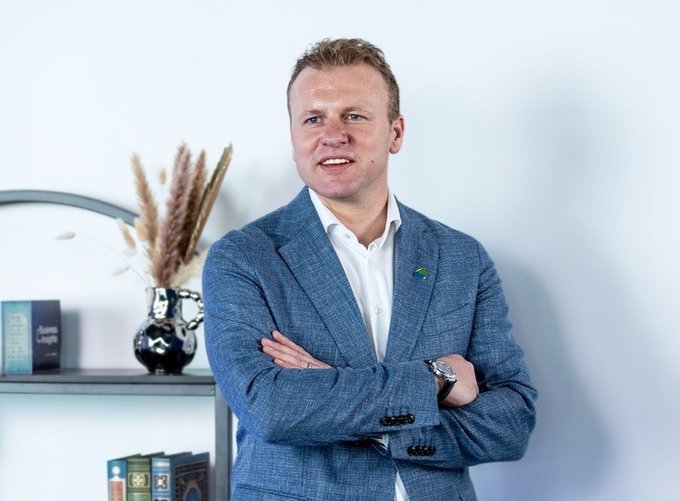
Mr. Johan van den Ban, General Director of De Heus Vietnam. Photo: VGP.
The livestock industry is developing rapidly but still lacks sustainability. Therefore, it is necessary to implement solutions for livestock production to develop more stably and sustainably.
Mr. Thanawat Tiensin, Director of FAO's Animal Production and Health Division, assessed that livestock production is an important part of the agrifood system, providing essential nutrients and livelihoods for millions of people in the world. However, the livestock industry is facing a number of major challenges, including environmental degradation, biodiversity loss, and climate change.
With global population growth expected to reach nearly 10 billion people by 2050, demand for products such as meat, eggs, and milk will increase by 20% in that time. Sustainable livestock production includes activities to meet the needs for food while minimizing negative impacts on the environment.
"Sustainable livestock production promotes the long-term availability of agrifood systems, protects natural resources, strengthens economic resilience, and contributes to creating a sustainable and flexible future. It also helps increase productivity, reduce production costs, and improve competitiveness in the market, ultimately contributing to economic growth and rural development," Mr. Thanawat Tiensin acknowledged.
FAO's expert also assessed that to achieve higher productivity with less impact, it is first compulsory to prioritize improving the efficiency of livestock production systems. This involves optimizing feed conversion, reducing feed waste, improving nutrient utilization, minimizing land and water resource degradation, reducing greenhouse gas emissions, and reducing environmental degradation. Additionally, priority should be given to applying climate-smart agricultural and livestock production methods.
Effective manure management in livestock production can significantly reduce greenhouse gas emissions. Furthermore, incorporating trees into livestock production systems through practices such as ecological agroforestry can bring many benefits. Agroforestry systems that combine trees and crops for animal feed will promote biodiversity and enhance carbon absorption capacity.
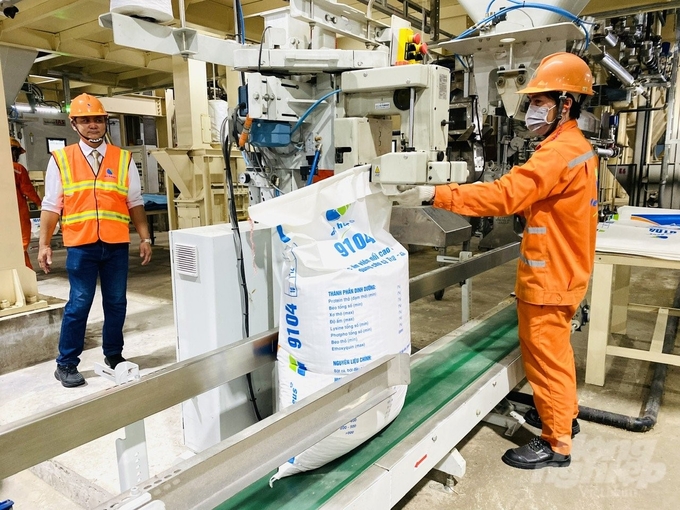
De Heus' pangasius feed factory in Tra Noc Industrial Park, Can Tho City. Photo: Le Hoang Vu.
De Heus Vietnam (a member of the De Heus Group from the Netherlands) is one of the leading businesses in the independent market animal feed business in terms of scale, output, and revenue.
Mr. Johan van den Ban, General Director of De Heus Vietnam, said: "About 15 years ago, when De Heus entered Vietnam, our main customers were distributors of animal feed products and nutritional solutions combined with the feed we produce. They mainly sell these products to small farmers, who only have about 1,000 chickens, 20 pigs, or a few cows."
But today, Vietnam's livestock industry has become much more professional. This goes hand in hand with the expansion of the average size of farms, so in our customer portfolio we are doing more direct business projects with farms along with distributors and agencies.".
Currently, De Heus is operating in the animal feed segment for cattle, poultry, and aquaculture. And Mr. Johan noticed two different trends. For aquaculture, most of the output is exported, such as shrimp, pangasius, and marine fish, to major markets such as the US, Europe, Japan, South Korea, etc., which have high requirements for food safety and antibiotic residues. Therefore, farmers in the seafood production value chain know they must comply with increasingly high standards.
According to Mr. Johan, De Heus Group in the Netherlands builds a sustainable development strategy with four major pillars. Under each pillar there are projects to ensure that the set goals are realized and applied globally, of which Vietnam is one of the important markets today.
"First is animal feed for food. Second is sustainable supply chains, including where the raw materials for animal feed production come from and whether it is clear and transparent or not. Third is community care, including villages where our customers are farmers, agents, etc. Finally, regarding the company team, who are contributing to the overall development of De Heus, we constantly strive to improve qualifications and provide a safe working environment as well as opportunities for employees to develop themselves," said Mr. Johan.
To implement these four pillars in the Vietnamese market, General Director Johan van den Ban said that every day, De Heus's team of hundreds of technical experts works with farmers to provide them with solutions such as silo systems that make feed more efficient, so farmers no longer need to use packaging. De Heus also helps farmers calculate the impact of livestock production on the farm on the environment, through which we wish to help them realize that sooner or later they will have to participate in the journey towards Net Zero.
"Large farms and young people will be pioneers, and we will connect them with buyers who have high quality requirements, meeting international market standards. We have done this for many years in places where De Heus is present, including Vietnam, with the desire to lead them on the path of sustainable development, reducing costs, and increasing profits," Mr. Johan said.
According to Mr. Johan van den Ban, General Director of De Heus Vietnam, the important strategy of De Heus Group for more than 100 years is not to compete with breeders but to be their partner. "I think the important thing is cooperation, because after all, they are the 'key.' Without farmers, we have nothing," Mr. Johan affirmed.
Translated by Thu Huyen
/2025/05/30/5010-5-173638_943.jpg)
(VAN) On May 29, at the GO! My Tho Trading Center, the Tien Giang Department of Industry and Trade, in collaboration with Central Retail Corporation, held the opening ceremony of the 3rd Fruit Festival 2025.
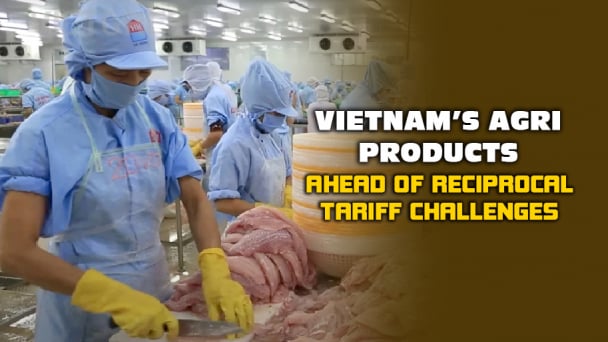
(VAN) Reciprocal tariffs are exerting pressure on U.S. exports, prompting Vietnamese firms to shift their focus to Muslim markets, Thailand, and Brazil.
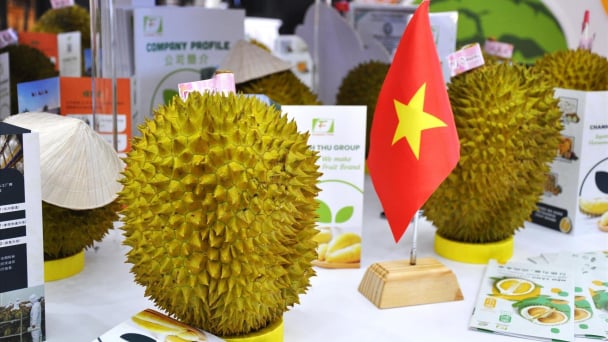
(VAN) A free booth for two years at Xinfadi, Beijing's largest wholesale market, will be allocated to Vietnam's agricultural products.
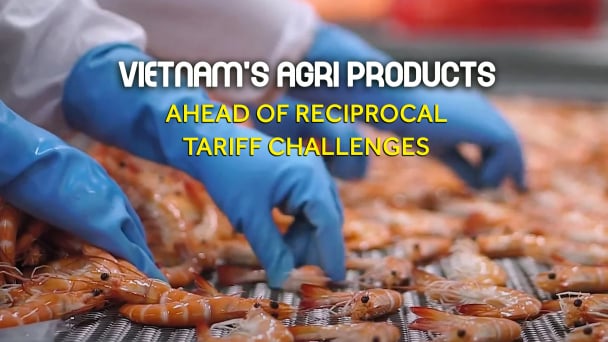
(VAN) Vietnamese shrimp exporters are actively looking for alternative markets and accelerating shipments to the United States in response to the pressure of impending reciprocal tariffs. This is occurring during a temporary tariff suspension.

(VAN) The import-export turnover between Vietnam and Singapore rose amid a trade rebound, with machinery, electrical equipment, and fuels making up the majority of the transaction value.

(VAN) Director General of the General Administration of Customs of China, Ms. Sun Mai Jun, has pledged to implement measures that will ease the import process for Vietnamese agricultural products.

(VAN) Although Vietnam is still increasing its coffee exports, the industry is currently in the process of determining market strategies in response to the U.S. imposition of reciprocal tariffs.